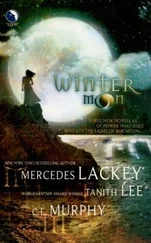‘Well,’ said Caius, ‘it seems it is the season for dead men to rise from their graves.’
‘Sir?’
‘Of course, you have not heard.’ Caius drained his wine, and held it out for the slave to refill. ‘The Emperor came close to death. An old sickness returning, his doctors said. Some fool even sent the messengers out when they thought his breathing ceased. But he yet lives, thank the gods, and so now we are sending riders all across the Empire, trying to convince them of that. A fine mess. There will be trouble from it, mark my words. Someone in the provinces will make a fool of himself, trying for the purple.’
No answer to be made to that, and so Lucius kept his silence.
‘But you,’ Caius said, ‘bring good fortune. A fine omen. The men will be pleased.’
‘Thank you, sir. I did not think that I was so well regarded, sir.’
‘You are not,’ the Legate said flatly. ‘One would think you had gone out of your way not to befriend the other officers. Or earn the fear of your men. But a man come back from across the water is a fortunate thing.’
‘Thank you, sir.’
‘We thought you lost long ago,’ said Caius. ‘Few of the cavalry we sent over the river came back to us. Those damn Sarmatian horses…’ He shook his head. ‘How did you get away, and with prisoners in your company?’
‘The Sarmatians fell to fighting one another, sir. The ones I brought in thought their chances better on this side of the water, and came to trade me for their lives.’
‘Naive creatures, aren’t they? And the Sarmatian you brought with you, I hear he is sick? I’ll have his throat cut and body burned if he carries the plague.’
‘No plague, sir. The fear of Rome. You know how it is with these barbarians.’
‘Well, you seem well enough.’ The Legate tried another smile that did not seem to fit his face. ‘They didn’t cut anything off, did they?’
‘No, sir.’ Lucius hesitated. ‘They thought me of too much value to harm.’
‘Be glad you are on the Danubius and not the Rhenus. The Germanic tribes do terrible things to their prisoners. But you have returned just in time to go to war again. The way of the Legion, eh?’
‘It is to be war then, sir?’
Caius waved a meaty hand in the air. ‘A prisoner came back over the river, gave some story that their people would surrender. But our scouts tell another story. They’re gathering again, and so we go to destroy them, once and for all. The Legion needs a war, it shall do them good.’
‘Yes, sir. For the glory of Rome.’
‘For the glory of Rome,’ Caius said, nodding absently. ‘I am sure that a few days of light duties will be sufficient for your recovery. There might be a little trouble with your replacement stepping down. Flavius, you know him? Ambitious man, and he shall hold your return against you. But nothing that you cannot contend with, I am certain.’ He looked down to the wax tablets on the table beside him – messages, reports, all the business of the Legion about to go to war. ‘Is there anything else you wish to say?’
‘Yes, sir. I was hoping to speak with the Emperor, sir.’
Stillness in the tent. The wind against the calfskin, the soft scratch of the slave shifting uncertainly from one foot to another. And on the Legate’s face, that particular, doubtful expression of a man who has grown unused to surprise.
‘The other centurions were lying, it seems,’ he said at last. ‘You do have a sense of humour.’
‘I am afraid not, sir. What I have seen amongst the barbarians, the Emperor will want to hear it. Sir.’
The smile fell away then. ‘You can give your message to me, centurion,’ said Caius. ‘I will relay it, if it is worthy of his attention.’
‘I would prefer—’
The ringing slap, a crack of clay – the jug of wine was broken and bleeding its contents upon the ground, and Caius was shaking the pain from the palm that had struck it. The slave, untrained as he was, fell to his knees, dabbing at the wine with his tunic and offering it up to his master, as though expecting the Legate to suck it from the sodden cloth – the child could not conceive of such bounty going to waste.
But the Legate ignored the boy, standing face to face with Lucius and eyeing him like an optio on the parade ground. ‘What does that matter?’ said Caius. ‘What is it you want? And do not give me fanciful tales. What you know of the barbarians does not matter.’
Lucius said nothing at first. There was only the searching for the right kind of lie, the art he had never mastered.
‘Speak,’ said the Legate, ‘or I’ll have you beaten. I shall not be spoken to so by a centurion.’
At last, Lucius said: ‘I have spent a winter amongst the barbarians. Tortured and starved. I dreamed only of this moment. I know that he is in this camp, so close to us now. I saw him once before, when I was sent to die. Let me speak to him, now that I live. I have earned it, sir.’
‘Earned it, have you?’
‘If I have done good service to Rome, I beg that you let me have this honour, sir.’
Another moment of silence. Then a barking laugh, and a hand clapping Lucius upon the shoulder, the anger gone just as quick as it had come. ‘You are all the same,’ said Caius. ‘Soldiers dreaming of their Emperor. Beautiful, in its own way, I suppose.’ He returned to the stool, brushing the slave aside. ‘I will ask, but do not hope for much. He has little use for men such as you.’
‘Thank you, sir.’
A pause. ‘You do know what you are, don’t you, centurion?’
‘A soldier of Rome, sir.’
‘No, that is just the mask you wear,’ Caius said. ‘Perhaps you even believe it yourself. But I see it in you. There are plenty of dreamers across the water, no doubt, amongst the barbarians. Plenty more buried back in the cemeteries in Rome, poets and philosophers of the old Republic.’ He sat back heavily. ‘But we have no use for such things here.’
A salute, answered in kind. And as he turned on his heel to depart, Lucius heard the Legate say, half to himself: ‘There are no dreams upon the border.’
*
Through the camp they were taken, Arite and Tomyris, until they reached the place where the prisoners were kept.
An open space within the palisade, with row upon row of barred wagons – mocking reflections of the tented caravans in which the Sarmatians had made their homes for centuries. The cages filled with Arite’s people, bound in iron that would have made a chieftain’s ransom out upon the steppe, waiting to be sent west to slave markets and salt mines.
Here and there she could see the corpse-grey flesh of one who had died in the night, still shackled to his companions, to be turned out only at the next changing of the guard. Yet even the living were near silent, barely moving. Occasionally a snarling brawl, as between dogs in a pack, as some scrap of food emerged to be fought over, or some old feud broke open again. But they did not have the strength to fight for long – fingers closing for a moment about a throat, a single strike from an open hand, before they collapsed once more.
Then the prisoners saw her being brought to them, and they came once more roaring to life. Keening songs of mourning, curses, promises of revenge, all chanted over and over again until the guards beat at the cages with clubs and the hafts of their spears, screaming curses of their own, and the prisoners returned to silence.
Some bribe had passed between Lucius and the soldier who escorted them, for he did not take them to the first of the barred wagons. He led them back and forth through the rows and columns as a horse trader might show his wares, waiting for Arite to choose her own place. And so she passed by the lost and the hopeless and the dead, until she found the cage where Bahadur was kept.
Читать дальше








![Стюарт Слейд - Воины зимы [Winter Warriors ru]](/books/401383/styuart-slejd-voiny-zimy-winter-warriors-ru-thumb.webp)



